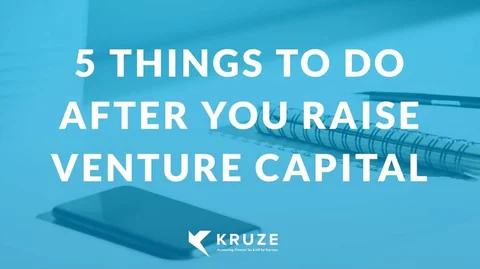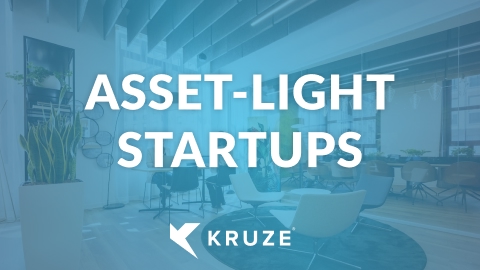
Video: What to do next after you raised venture debt for your startup?
Today we’re talking about five things to do after you raise venture capital.
The first one’s kind of obvious. You need a place to put that money, so you need to get a startup bank. We highly recommend you work with a bank that focuses on startups. Our favorites are Square 1, and First Republic. All three of those banks are excellent. They have tons of startup services. They understand what it’s like to work with startups, and they have great systems and great customer service. Highly recommend, Square 1, and First Republic.
Secondly, you need to start ramping your recruiting efforts. Most entrepreneurs underestimate how long it’s actually going to take to hire people, and if you’re three months late hiring people, that means you’re going to be three months late delivering on your plan to your venture capital investors. We use a great service called “Recruit”, so check that out. That will help you ramp your recruiting, but get at it really quickly. Don’t waste time, otherwise you’ll be late on your plan.
The third thing you want to do is hire an accounting firm. You need someone to handle your taxes, your monthly accounting, your monthly close. You need to know where you’re spending your money. Almost as importantly, the venture capitalists need to know where you’re spending the money. They need real reporting. They need gap financials, and will likely have specific financial reporting requirements. You should hire an accounting firm that specializes in working with venture capital funded startups.
Now, of course this is a little self-serving because that’s what we do at Kruze Consulting. Give us a call but regardless of whether you work with us or someone else, you’re going to want an accounting firm. You need to professionalize your financial operations.
Fourth, you’re going to want to start planning for your first board meeting. The first board meeting sets the tone in the relationship with the venture capitalists. Be prepared. Know what your plan is. Know what you’re going to spend money on this year. Know what your milestones are. If you’re prepared at your first board meeting, you’re going to give them a lot of confidence, you’re going to have a good foundation for the relationship, and everything’s going to be, well not everything but most things, will be smooth sailing after that.
The last thing you want to do after raising venture capital is think about venture debt. It’s a great time to put a venture debt line in place. Now there’s an old saying, “You need money to borrow money,” and it’s true. Lenders love doing a deal with a startup after the equity has just come in. There’s no adverse selection. They know the VCs are behind the company, and they can structure a forward commitment, which means you’ll pull the money down in the future. You don’t have to pull it down right away. But getting it in place early, right after you raise money, is really, really, helpful.
So, to reiterate, you want to get a bank relationship. You want to ramp your recruiting. You want to hire an accounting firm, like Kruze Consulting. You want to prep for your first board meeting and you want to look at putting a venture debt line in place.















